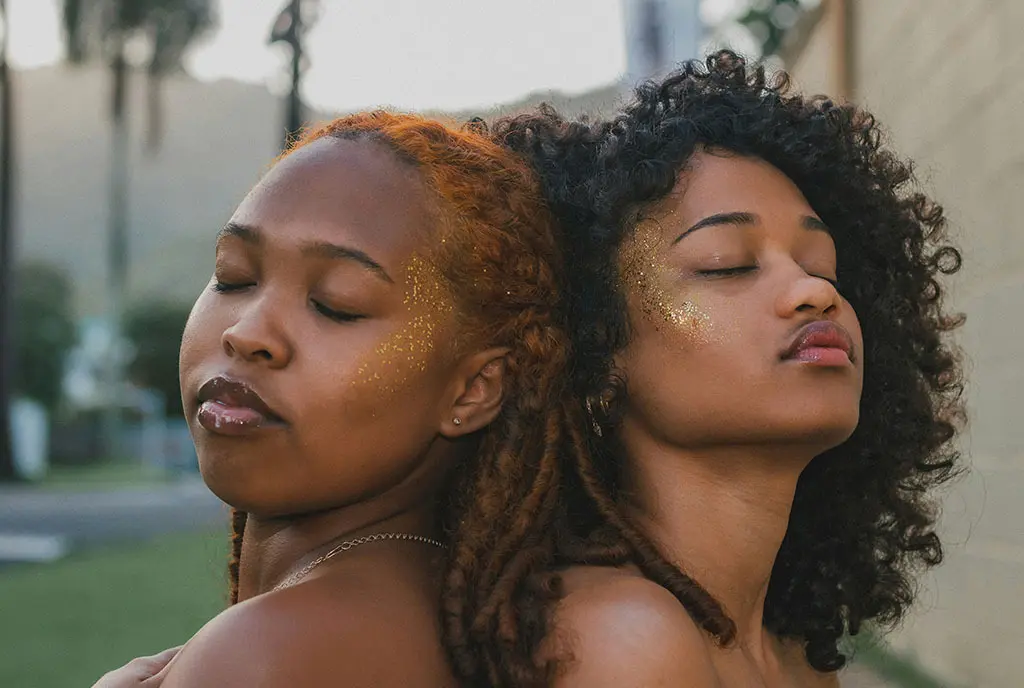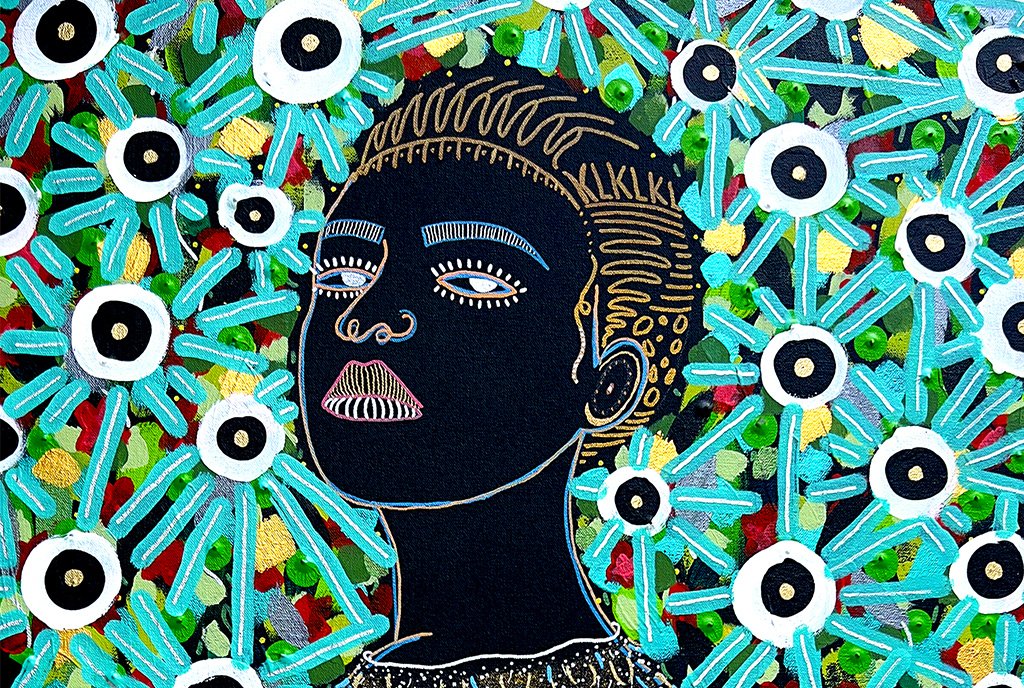
On Election Day 2024, many people across the country voted with the hope that they would play a role in shaping history by helping to elect the first woman as president of the United States.
The prospect of electing Kamala Harris—a woman of both Black and Asian descent—particularly galvanized Black women who have only had the protected right to vote in America since 1965. As many Black women sought to make history, they reflected on history and encouraged others to do the same.
Remembering the Past
Leading up to the election, public historian and writer Michelle Duster wrote that she voted to “honor the past and have a say in the present.” Duster is the great-granddaughter of Ida B. Wells-Barnett, the anti-lynching crusader and suffragist who participated in the 1913 Suffrage March and advocated for Black women to be included.
For Duster, voting is personal: “Even though I was born a century after [Wells-Barnett], I’m still the first generation to have the right to vote without significant barriers. I grew up knowing that people fought and died to gain the right to vote, and was a toddler when the Voting Rights Act was signed in 1965.”
As she sought to galvanize young voters, one Alabama woman, 89-year-old Loretta Green, wore a shirt adorned with her poll tax exempt certificate from 1960, granted to her because she joined the military. In the years before the Voting Rights Act was passed, most Black people living in the South did not receive an exemption, and they had to choose between paying a tax to vote or using the money to feed their families. “This is Why I Vote,” Green’s shirt read.
Meanwhile, in Tulsa, OK, the oldest living survivors of the 1921 Tulsa Massacre, 110-year-old Viola Fletcher and 109-year-old Lessie Benningfield Randle, cast their votes for Harris. In recent years, Fletcher and Randle have led efforts for reparations for the survivors of the massacre. Though at the time they were just seven and six years old, respectively, both women still have vivid nightmares of the massacre and destruction of Tulsa’s Black Wall Street—the aftermath of which still reverberates today.
“If their professional backgrounds were reversed, then there would have been no contest for Kamala Harris.”
Now, the once-vibrant district is now plagued by high poverty rates and lower life expectancy. For the women who have experienced firsthand the extent of racism and hatred that has historically been inflicted upon Black people, it was meaningful to be able to vote for a Black woman.
“If this is my last ballot, then I’m grateful that it’s for Kamala Harris,” Randle said as she cast her ballot during early voting.
Election Day also marked exactly 56 years after Shirley Chisholm became the first Black woman elected to the US House of Representatives. Four years later, Chisholm became the first woman and first Black candidate to seek a major party nomination for president of the United States. Though Harris, like Chisholm, ultimately would not be elected to the presidency, November 5, 2024, proved to be a historic night in other ways—two Black women were elected to serve in the Senate for the first time in US history.
Disappointed but Not Surprised
In the early hours of November 6, it became clear that former President Donald Trump—the first former president to be convicted of felony charges—had garnered enough electoral college votes to win, claiming every swing state in the country. Though the vast majority of Black women—and even Black men—voted for Harris, Trump was propelled to victory with the help of 52 percent of White women voters and nearly half of Latinx voters.
“I really believe if their professional backgrounds were reversed, then there would have been no contest for Kamala Harris. The fact that you have somebody with the background that Trump had against somebody with the background of Kamala Harris, and for him to come out the victor, I just think it says so much,” Duster told WTTW in Chicago.
“They’re voting for the interests of what matters to them…for many Americans, this means maintaining their position at the very top of the American hierarchy.”
In the wake of the election, many Black women shared this sentiment that they were disappointed but not surprised by the election results.
Many have conjectured about how Trump could gain such vast support among many of the same groups he has denigrated during his campaign and the years leading up to it.
Sign up for our free newsletters
Subscribe to NPQ's newsletters to have our top stories delivered directly to your inbox.
By signing up, you agree to our privacy policy and terms of use, and to receive messages from NPQ and our partners.
But for Isabel Wilkerson, author of the 2020 book Caste, which explores how the racial caste system shows up in the United States, this was no surprise. In an interview with Lawrence O’Donnell on MSNBC days before the election, Wilkerson explained why she would not be surprised at all if Trump were to gain substantial support during the election.
“People are not voting against their own interest,” she said. “They’re voting for the interests of what matters to them. And for many Americans, this means maintaining their position at the very top of the American hierarchy—at the very top of the American caste system, with all the rights and privileges that accrue to that.”
Wilkerson suggested a big reason why the country is seeing so many divisions is that, by 2042, White people are expected to no longer be the majority in the country. As she explains, this fuels people’s insecurity about immigration and who is coming into the country.
She also suggests this is why there is a “fixation on births—not just abortion, but births.” Particularly as he disparaged immigrant groups like Haitians and Mexicans, Trump spoke to concerns many Americans feel about upholding the caste system in the United States.
In addition to this desire to uphold the caste system, Americans expressed deep concerns about inflation and the economy. This was a top priority for Black women, who disproportionately voted for Harris, but exit polls show that many of those who voted for Trump share the sentiment.
“The Democratic Party really underestimated the extent to which lots of people in this country are in crisis”
During an interview with Democracy Now! following the election, Keeanga-Yamahtta Taylor, a writer, activist, and professor of African American Studies at Northwestern Studies, said, “It’s shocking that someone like Trump could be back in this position, but it’s not really surprising.”
Leading up to the election, Taylor published a piece in the magazine she cofounded, Hammer & Hope, where she explored why the election between Harris and Trump was so close.
“Even as Trump’s campaign has offered little more than racist rants, likes, and a few incoherent economic policies (higher tariffs and eliminating taxes on topics for service workers), he stands as a good chance as Harris of winning the presidency,” Taylor wrote.
Noting that Americans are experiencing unprecedented rates of homelessness, and many are left riddled in debt, Taylor suggests that Harris—as well as the Democratic party as a whole—did not speak to these concerns enough.
Harris sought to distinguish herself from Trump and Biden to garner the support of voters who might otherwise be reluctant to vote for her. Taylor believes, however, that instead of seeking to forge “a new way forward,” Harris should have embraced popular pandemic-era measures—like expanded unemployment insurance, student loan relief, antitrust measures, climate investments, and pro-union stances that helped pull everyone up.
In her interview, Taylor offered a succinct explanation for the election’s outcome: “The Democratic Party really underestimated the extent to which lots of people in this country are in crisis.”
The Fight for Future Generations
Indeed, many people are in crisis now—and many more will likely be in crisis under the next Trump term. He has already announced plans to start mass deportations of migrants, dismantle climate policies, cut access to gender-affirming care and protections for transgender people, shut down the Department of Education, and pardon those involved in the January 6 riots. Though Trump has made inconsistent statements about the Affordable Care Act, there are mounting concerns about whether millions of people will lose their healthcare.
For Black women who looked back at history as they sought to make it, it will be increasingly important to remember those who came before them—like Ida B. Wells-Barnett, who refused to be silent about the injustices occurring around her and faced staggering odds as she fought to sustain her rights, not just for herself, but for the generations to come.












